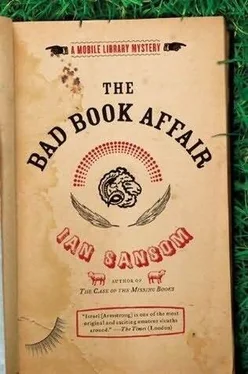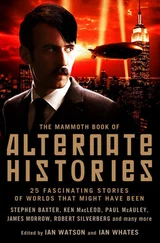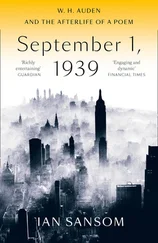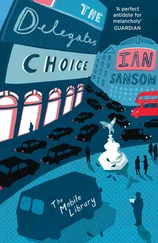“Well. Yes. I suppose.”
“Not very discreet, then, your discretion?”
“Well. I just…I think everyone should be allowed to read these books. Look.” He picked up Graham Greene’s Brighton Rock. “What’s wrong with that?”
“You’d have no problem issuing that book to a child?”
“Children don’t tend to want to borrow Graham Greene, on the whole. But young teenagers, I suppose. I’d have no problem with that really.”
“I see. And these books contain descriptions of violence and sex?”
“Some of them. But they’re mostly about what all books are about.”
“Which is?”
“I don’t know. What all books are about: the glory and…misery of being human.”
Friel wrote down what Israel had said, looking rather doubtful.
“So you have no problem with lending young people that sort of material?”
“What sort of material?”
“This sort of material: the Unshelved.”
“Well, some of it, maybe, but not really. It’s all different.”
“But you just said all books were about the same thing.”
“Well, yes, they are and they aren’t.”
“Some of them more disturbing than others perhaps?”
“Of course.”
“And the more disturbing material, you’re happy to lend out?”
“Well, look, they’re all on MySpace and file-sharing and YouTube, and goodness knows what. So what’s the problem with them borrowing a Nabokov?”
“Is that a book?”
“That’s an author.”
“I see.”
“Hmm,” said Friel. “And how are you spelling that?”
Israel spelled it. Friel wrote it down and ominously closed his notebook.
“Is that it, then?” said Israel. “You’ve finished with our cozy little chat?”
“Yes. I think so,” said Friel.
“Good,” said Israel, relieved.
“I just need you now to accompany me to the station, Mr. Armstrong.”
“What? You said-”
“I’d just like you to clarify a few points for us. On the record.”
“Oh no. No. I’m not-”
“It’s not really a request, Mr. Armstrong.”
“No. Please. I thought you said that I didn’t have to come to the station. Don’t make me-”
“I’m not going to make you do anything, Mr. Armstrong. I believe in the force of argument. But, alas, my colleagues”- and here Friel nodded toward the other policemen gathered outside the van-“tend to believe in the argument of force.”
“Oh god.”
“Good. You can drive the van to the station. I hardly think you’re going to make a dash for freedom, are you?”
“What?”
“Good. If you follow my vehicle, and we’ll have another car behind, just to make sure.”
So, just as he’d driven into Ballintoy Harbor last night under a cloud of despair, Israel now drove back up the winding hill, under a cloud of suspicion.
“I’ll tell ye what, ye don’t want to be making a habit of this,” said Ted as Israel emerged from Rathkeltair police station into the rain some hours later.
“I have no intention of making a habit of this, Ted, believe me.”
“Getting caught up with police investigitations. It looks bad.”
“I know it looks bad.”
“Bad,” repeated Ted.
“Yes, I know. I haven’t got anything to do with it, though, you know.”
“Aye, well. I know that, ye eejit.”
“Thank you.”
“Not even ye’d be stupit enough to-”
“Yes, all right, thank you, Ted. I appreciate your support.”
“Trouble is, try telling them that.”
“Who?
“Come under the umbrella here,” said Ted. “Quick.”
Israel obediently leaned down under the umbrella-a vast golfing-type umbrella advertising Maurice Morris’s financial consultancy.
“We need to get you away, son.”
“Why?” said Israel as he huddled under the umbrella with Ted, striding away from the station.
“The media,” said Ted.
“Why are they here?” said Israel.
“What? Young girl goes missing? Librarian being questioned? Wise up, Israel! Why do you think? You need to lie low.”
“Oh god.”
“And save yer prayers. Round the corner and we’re into the home stretch. I’ve the taxi parked just there.”
They walked quickly down Rathkeltair’s notoriously cracked pavements-subject of more than one minor injury claim against the council. The air around them smelled of rain and cat piss and potatoes; somehow Rathkeltair always smelled of potatoes. Rathkeltair was the kind of place that smelled as though someone had always just cooked dinner.
As they rounded the corner there was the ominous sound of running behind them.
“Israel! Israel!” came a voice.
“Ye’ve got company,” said Ted. “Come on. Don’t stop. Don’t turn around. And don’t show ’em yer face.”
They started walking even quicker, and whoever it was started walking quicker also. In heels.
“Israel, wait, wait!”
“I think I know who it is,” Israel to Ted.
“I don’t care who it is.”
“I think it’s Veronica.”
“What?” said Ted.
“Veronica Byrd.”
“Ach. The wee hasky bitch from the Impartial Recorder? I might have guessed.”
Veronica caught them as they reached the cab. She was wearing a red raincoat that looked as though it had recently been poured from a sauce bottle; her blonde hair was swept back into a bun, held in place by a shining tortoiseshell comb; and she wore shoes that would surely have made any kind of reporting difficult.
“Hello, Israel,” she said as Ted lowered the umbrella and went round to open the driver’s side.
“Hello,” said Israel rather shyly.
“I knew it was you!” she said.
“How?”
“Your cords,” she said.
“Ah,” said Israel. “Betrayed by the cords.”
“Indeed,” she said, cocking her head slightly. “So?” she said.
“So?” said Israel.
“Come on,” said Ted, who had opened up the passenger car door.
“How did you get mixed up in this one, Israel?” She spoke in a tone of good-natured reproach, and when she spoke, you noticed her cheekbones-or, at least, Israel noticed her cheekbones. They were reproachful cheekbones.
“Well, I’m not really mixed up in it, to be honest. Whatever this is.”
“Come on!” said Ted. “In.”
“Look, it’s nice to see you, Veronica, but I have to-”
“No, no,” she said, standing in front of the open door. “Don’t be rushing off when we’ve only just said hello.”
“Sorry. I have to.” Israel went to reach round her to get into the car. Veronica pushed him back and shut the car door with her hip.
“We’re old friends, Israel, aren’t we?”
Israel hesitated.
“And I’m sure you could use a friend at the moment, couldn’t you?” she asked.
“He’s got a friend,” said Ted, who had leaned across and opened the passenger door again from the inside. “You!” he said, addressing Israel. “In!” And then, “You!” addressing Veronica. “Run along there.”
“Yeah!” laughed Veronica. “Right. In these shoes? Come on, Israel,” she said, with authoritative boldness. “I’ll buy you a drink.”
“No, thanks,” said Israel. “I don’t drink at lunchtimes.”
“Oh, go on.”
“Into the cab,” said Ted. “Now!”
“Come on,” she said. “You can catch up with Lurch later.”
“In!” said Ted.
“Come on, Israel. Please.” She fixed him with her pale, piercing blue eyes. “Give a girl a break.”
Israel stood and looked at her. He’d always liked her. He liked her because she talked like she was in a film starring Peter Lorre and Edward G. Robinson. And he liked her because she always talked as if the world were in jeopardy and she could alone could somehow sort things out.
Читать дальше
Конец ознакомительного отрывка
Купить книгу












